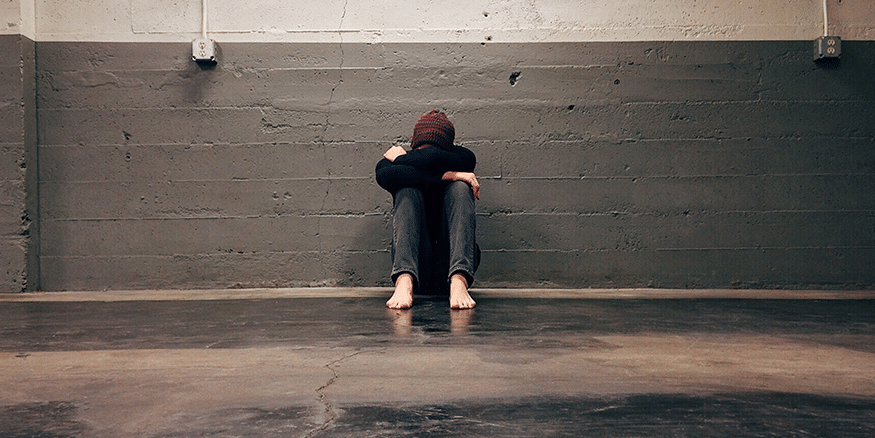
Depression and Inflammatory Bowel Disease (IBD)
It can be challenging and stressful to live with a chronic disease such as inflammatory bowel disease (IBD), but does this mean one is more likely to have serious problems with anxiety and depression as well? Yes, according to a recent study1 published in the American Journal of Gastroenterology that compared the rates of depression and anxiety in the general community to that in IBD patients. A Canadian research team following a group of more than 350 adults with IBD found that those with this illness were at least twice as likely to have experienced a depressive disorder at some point in their lifetime compared to those of similar age and background who did not have IBD, with rates of 27% compared to 12%. There were also higher rates of panic disorder for the IBD group. The community sample of 779 was drawn from the Canadian Community Health Survey, a national survey that uses rigorous sampling techniques to ensure that it is representative of the population of Canada.
Mental health conditions like anxiety and depression are common, especially in young adults, with about 1 in 10 experiencing clinical-level symptoms across a year period. Depression and anxiety are both more common in persons with chronic illnesses such as diabetes and heart disease. Depression has been found to complicate recovery in heart disease and increase the risk of a second heart attack. While other studies have shown a relationship between inflammatory bowel disease and anxiety or depression for some patients, this is the first study that has been able to directly compare to a matched community sample using the ‘gold standard’ of a detailed clinical interview to sort out whether depression and anxiety are more common in IBD.
The study also looked at the timing of onset of the psychiatric disorder and inflammatory bowel disease. It found that the age of onset of the IBD symptoms was earlier, on average, by 4 years, for those who had ever had an anxiety or depressive disorder compared to those who had not. In addition, about half of those with a mood disorder had a first episode of depression more than two years before the onset of IBD. While this is not entirely surprising given the common emergence of these disorders in adolescence (and earlier in the case of anxiety), these findings do raise some questions about emotional disorders as a risk factor for the development of IBD. Finally, of those who had ever experienced one of these disorders, 46% were found to have a first episode of depression and 36% were found to have a first episode of anxiety at some point around or after the time of the IBD diagnosis, which is supported by previous research.
These findings suggest a need for more routine screening for anxiety and depression in IBD patients as part of regular care. Fortunately, very effective psychological or medication treatments are available for these conditions, which can help people to cope more effectively with chronic illness.
Lesley Graff, PhD and John Walker, PhD
Department of Clinical Health Psychology
Faculty of Medicine, University of Manitoba
First published in the Inside Tract® newsletter issue 171 – 2009
Walker JR, Ediger JP, Graff LA, Greenfeld JM, Clara I, Lix L, Rawsthorne P, Miller N, Rogala L, McPhail C, Bernstein CN. The Manitoba IBD Cohort Study: A population-based study of the prevalence of lifetime and twelve-month anxiety and mood disorders. American Journal of Gastroenterology 2008; 103:1989-1997.
Depression and anxiety have long been associated with inflammatory bowel disease (IBD), but it has been unclear whether these disorders precede or follow diagnosis, or whether they are components of IBD. A research team in England used a database of hospital record abstracts to determine whether depression and anxiety co-occur with ulcerative colitis (UC) or Crohn’s disease (CD) more often than expected by chance, and to examine any occurrence relationship.
The researchers found more depression and anxiety than expected in the year just preceding diagnosis of UC, and more anxiety five or more years following this diagnosis.
For CD, depression and anxiety were highest in the year following diagnosis.
Often the diagnosis of IBD comes as a great relief to someone who has been suffering with the symptoms, as it often takes quite some time to receive a diagnosis after onset of symptoms. The researchers suggest that concentration of these psychiatric disorders just prior to diagnosis could be due to the early symptoms of an undiagnosed gastrointestinal condition while the psychiatric disorders following diagnosis could be a normal reaction to news of diagnosis.
Another contributing possibility could be that patients may be on corticosteroids following diagnosis, which could affect mood. Researchers stress that there is no evidence that depression triggers inflammatory bowel disease.

